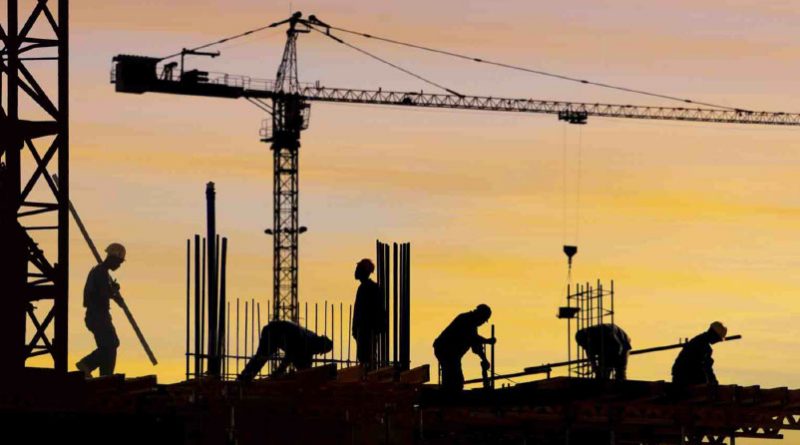Ulster Bank Construction PMI® Report (RoI): Activity rises at fastest pace in five months
The Ulster Bank Construction PMI® Report (RoI) has found that the rate of expansion remained strong in the Irish construction sector amid reports of improving client demand.
New order growth was sharp and only marginally weaker than in February. Constructors responded by raising their own input buying and employment levels. Business confidence remained positive as firms generally expect recent improvements to continue over the coming year, that’s according to ‘The Ulster Bank Construction Purchasing Managers’ Index® (PMI®)‘ – a seasonally adjusted index designed to track changes in total construction activity – rose for the second month running to 60.8 in March from 57.9 in February. This pointed to a sharp monthly increase in total construction activity and the most marked since last October. According to respondents, strengthening customer demand was the main factor leading activity to rise.

Commenting on the survey, Simon Barry, Chief Economist Republic of Ireland at Ulster Bank, noted that: “Growth in Irish construction activity accelerated further in March, according to the latest results of the Ulster Bank Construction PMI survey. The rate of overall expansion picked up to a five-month high last month, as the headline index rose to 60.8 from 57.9 in February signalling robust expansion of activity. There was a very sharp acceleration in commercial activity which took the Commercial PMI to its highest level since last October, in the process leaving commercial as the strongest performing activity category last month. Housing activity continues to expand at a very rapid rate, albeit that the pace of growth in residential activity eased modestly in March. Civil engineering remained an area of weakness, however, with respondents reporting a fifth consecutive decline in activity. “Other details from the survey also highlight the strength of the ongoing expansion in activity. Strong demand for the services of construction firms was very much evident in further substantial increases in new orders, employment and input buying last month. And respondents continue to judge the sector’s outlook to be very favourable, with improving economic conditions, strengthening client demand and plans for business expansion cited as important sources of support. Indeed, confidence about future activity prospects edged higher in March with more than 57% of respondents anticipating a rise in their activity levels over the coming twelve months.”
For the first time in 2017 so far, the commercial construction category posted the fastest increase in activity during March as growth reached a five-month high. Housing activity continued to rise sharply, despite the rate of expansion easing from February. Meanwhile, activity on civil engineering projects continued to fall modestly.
Sharp rise in new business
Higher demand also reflected growth of new orders in March, with the sharp expansion at the end of the first quarter only slightly slower than that seen in February.
Near-record increase in purchasing activity
With new orders expanding, constructors increased their purchasing activity at the second-fastest pace in the survey’s history, only marginally behind November 2004’s record.
With new projects getting underway, companies increased their staffing levels accordingly. Although easing to the slowest since September last year, the rate of job creation was substantial.
Average vendor performance also declined during March, with the solid lengthening of lead times broadly in line with that seen in February. Panellists indicated that stock shortages at suppliers had been the cause of delivery delays.
Input prices rose sharply again, with the rate of inflation accelerating from the previous month. Respondents noted higher costs for raw materials, including a range of metals.
Companies were again optimistic regarding the future prospects for activity, with improving economic conditions, stronger client demand and business expansion plans all mentioned. More than 57% of respondents predicted growth of activity.
Follow Ulster Bank Economics on Twitter: https://twitter.com/UB_Economics
Simon Barry, Chief Economist, Republic of Ireland, Ulster Bank.
[rev_slider StelradBN17]

